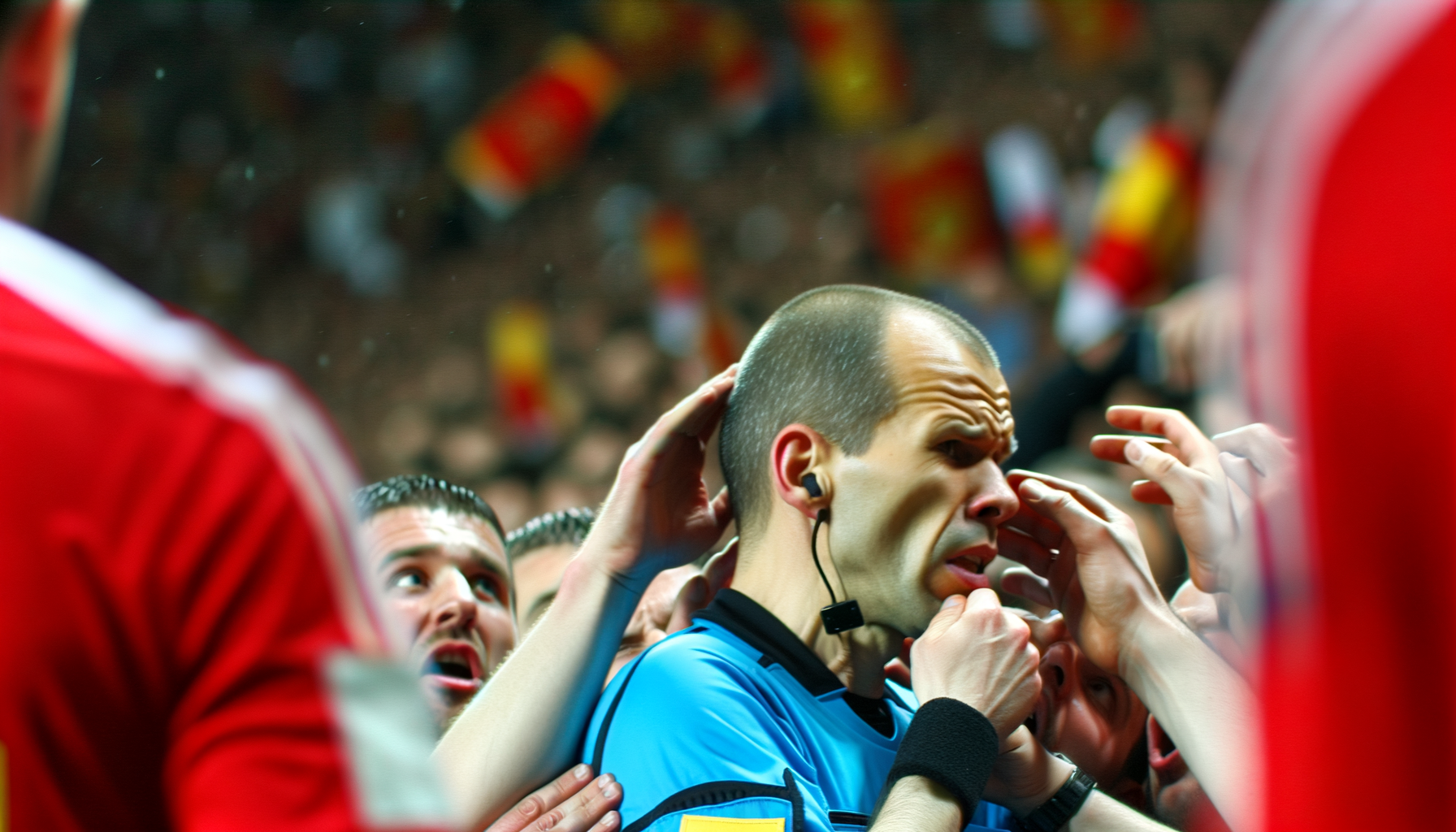The challenges and pressures faced by top football referees
Explore the intense pressures football referees face, from abuse to VAR scrutiny, and how it affects their mental health and performance.

By Editorial
Introduction to the pressures on football referees
Football referees operate under immense scrutiny and pressure, often expected to deliver flawless decisions in high-stakes environments. Premier League referee Anthony Taylor recently opened up about the challenges he and his colleagues endure, highlighting the damaging culture of expecting perfection and the mental toll it takes. This article explores the realities behind officiating top-level football, the impact of the win-at-all-costs mentality, and how technology like VAR has reshaped public expectations.
The impact of abuse and unrealistic expectations on referees
Anthony Taylor’s experience following the 2023 Europa League final exemplifies the extreme abuse referees can face. After overseeing a match with 13 yellow cards and 25 minutes of added time, Taylor was verbally abused by fans and even confronted by Roma's manager Jose Mourinho, who faced suspension for his behaviour. Taylor’s family, once attending matches, have since stopped due to the hostile environment, underscoring the personal cost of such abuse.
Such instances reveal how football’s win-at-all-costs culture fuels hostility towards officials. Taylor explained that continual criticism from media, pundits, and even former referees can severely damage mental health. This culture not only affects elite referees but trickles down to grassroots football, where young officials face verbal abuse from parents and spectators, stifling their development.
The role of scrutiny and the myth of perfection in officiating
Scrutiny is a natural part of professional sport, but Taylor stresses the need for balanced critique. He points out that the outcome of a football season is rarely due to a single decision or error, yet referees often bear the brunt of blame. This unbalanced criticism ignores positive contributions and overlooks the complex, multifaceted nature of football outcomes.
Referees’ body Professional Game Match Officials Limited (PGMOL) has recognised these pressures and introduced psychological support services in partnership with mental health charity Mind to aid officials’ wellbeing.
How VAR has changed expectations of referees
The introduction of Video Assistant Referee (VAR) technology in the Premier League in 2019 has been a double-edged sword. While intended to aid decision-making, it has created unrealistic expectations for absolute perfection. Taylor observes that the public’s demands are contradictory; some complain VAR disrupts the game’s flow, while others criticise when it does not intervene.
Rather than a decision-making utopia, VAR has heightened the quest for flawless officiating, increasing pressure on referees. Taylor emphasises the need to accept human fallibility and create an environment where referees are not fearful of making mistakes, as this fear can impair performance and deter future officials.
Extreme conditions and preparation for global tournaments
Refereeing is physically demanding, especially in extreme conditions like those at the recent Club World Cup in the United States. Taylor described the brutal heat challenges, with players and officials alike struggling to cope despite extensive preparation including environmental chamber training back in the UK.
Looking ahead, Taylor believes that with adequate preparation, officiating at next summer’s World Cup across North America should be manageable. Physical and mental readiness is crucial to maintaining high standards, especially in tournaments of such magnitude.
Why refereeing remains one of the best jobs in football
Despite the adversity, Taylor remains passionate about refereeing, describing it as one of the best jobs in the world. Being at the centre of action in the world’s most exciting league offers unique experiences and challenges. While age and physical demands pose natural limits, Taylor’s focus is on ensuring that refereeing standards continue to improve, with hopes of representing England with two refereeing teams at the upcoming World Cup.
Conclusion: Building a supportive culture around referees
The experiences shared by Anthony Taylor highlight the urgent need to reassess how football culture treats referees. Media, fans, and clubs must foster a more respectful, balanced environment that recognises the complexity of officiating. Supporting referees at all levels, from grassroots to elite, with mental health resources and realistic expectations is vital for the future of the game.
For football fans wanting to stay informed on related topics, exploring how to watch your team this season can enhance your matchday experience. Meanwhile, stories about sportsmanship and breaking barriers, such as Jack Leslie’s posthumous England cap, remind us of the positive side of sport worth celebrating.
Ultimately, by understanding the pressures referees face and promoting empathy, we can help preserve the integrity and enjoyment of football for everyone involved.
Related topics
Editorial
Sports expert at SportsScoop
Specialist in sports analysis and journalism
Related articles
Want to read more?
Explore our comprehensive collection of sports articles and analysis, or contact us for more information.



